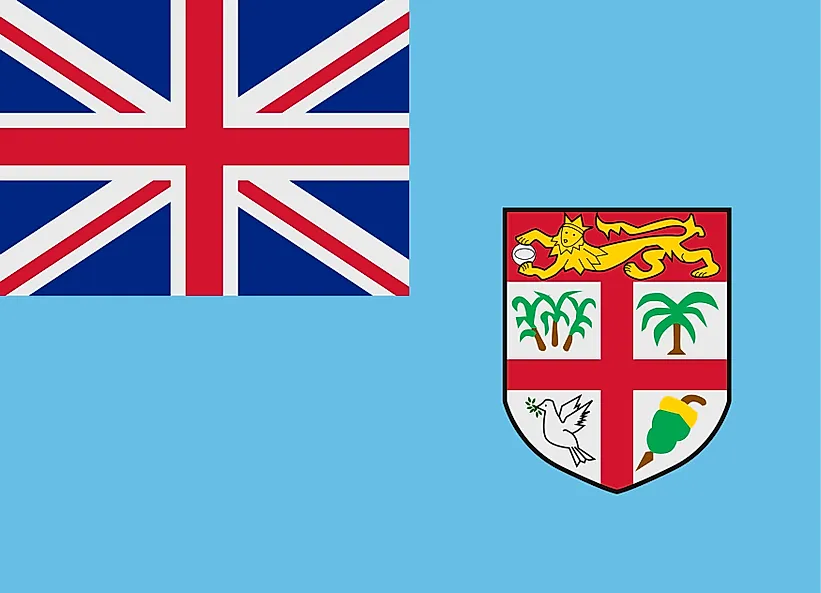
Fiji
| Continent | Oceania |
| Capital | Suva |
| Population | 915,303 |
| GDP | $8.37 Billion |
| GDP per Capita | $9,400 |
| Dialing Code | +679 |
| ISO Code (2-letter) | FJ |
| ISO Code (3-letter) | FJI |
Fiji Landscapes






About Fiji
Welcome to Fiji, an archipelagic nation where tropical beauty meets rich Melanesian culture in the South Pacific. With approximately 900,000 people spread across 333 islands (110 inhabited) occupying 18,274 square kilometers of land area, Fiji combines pristine natural environments with vibrant cultural traditions.
Geographic Features and Natural Beauty
Fiji’s geography encompasses diverse island landscapes, from volcanic mountains to pristine beaches and coral reefs. The two largest islands, Viti Levu and Vanua Levu, account for most of the land area and population. The country features dramatic variations in landscape, including rainforests, mangrove swamps, and mountain ranges reaching 1,324 meters at Mount Tomanivi.
The Great Sea Reef (Cakaulevu Reef), the world’s third-longest continuous barrier reef system, surrounds much of the archipelago. The islands feature numerous waterfalls, including the Tavoro Falls in Bouma National Heritage Park, and pristine beaches with both black and white sand.
The tropical climate supports lush vegetation and diverse marine life, making Fiji one of the world’s premier diving destinations. The country’s location in the South Pacific creates a perfect environment for coral growth and marine biodiversity.
Cultural Heritage and Traditions
Fijian culture reflects a rich blend of indigenous Melanesian traditions, Indian influences, and colonial heritage. Traditional customs, including the kava ceremony and meke (traditional dance and storytelling), remain central to Fijian life.
Traditional arts include tapa cloth making (masi), pottery, wood carving, and weaving. Fijian cuisine combines local ingredients like taro, cassava, and fresh seafood with Indian influences, creating unique fusion dishes.
The concept of “bula” spirit, representing warmth and welcome, characterizes Fijian hospitality. Village life maintains strong communal traditions, while traditional leadership structures continue to play important roles alongside modern governance.
Historical Journey
Fiji’s history spans from early Melanesian settlement through Dutch and British exploration to independence in 1970. The colonial period brought significant Indian migration through the indentured labor system, creating today’s multicultural society.
The country has experienced various political changes since independence while maintaining its cultural traditions. Recent decades have seen development in tourism and efforts toward environmental conservation.
Modern Economic Landscape
Today’s Fiji has an economy based primarily on tourism, agriculture, and services. The country is a major tourist destination in the South Pacific, known for its luxury resorts and adventure tourism opportunities.
Agriculture remains important, with sugar, coconuts, and fish products being significant exports. The country has also developed niche markets in bottled water and organic products.
International Relations and Global Position
Fiji maintains active participation in Pacific regional organizations and plays a leadership role in addressing climate change issues. The country is known for its contributions to UN peacekeeping missions and advocacy for small island states.
Did You Know?
• Fiji consists of over 333 islands, of which only 110 are permanently inhabited?
• The country was once known as the “Cannibal Isles” but has transformed into a peaceful tourist paradise?
• Fiji Water, sourced from an artesian aquifer in Viti Levu, is exported globally?
• Rugby Sevens is the national sport, with Fiji winning multiple Olympic gold medals?
Conclusion
Fiji represents a unique blend of natural beauty and cultural diversity in the South Pacific. From its coral reefs to its rainforest peaks, from its traditional villages to its modern resorts, Fiji continues to evolve while maintaining its distinctive island character. As it addresses challenges including climate change and economic diversification, Fiji remains committed to sustainable tourism and cultural preservation while sharing its paradise with the world.